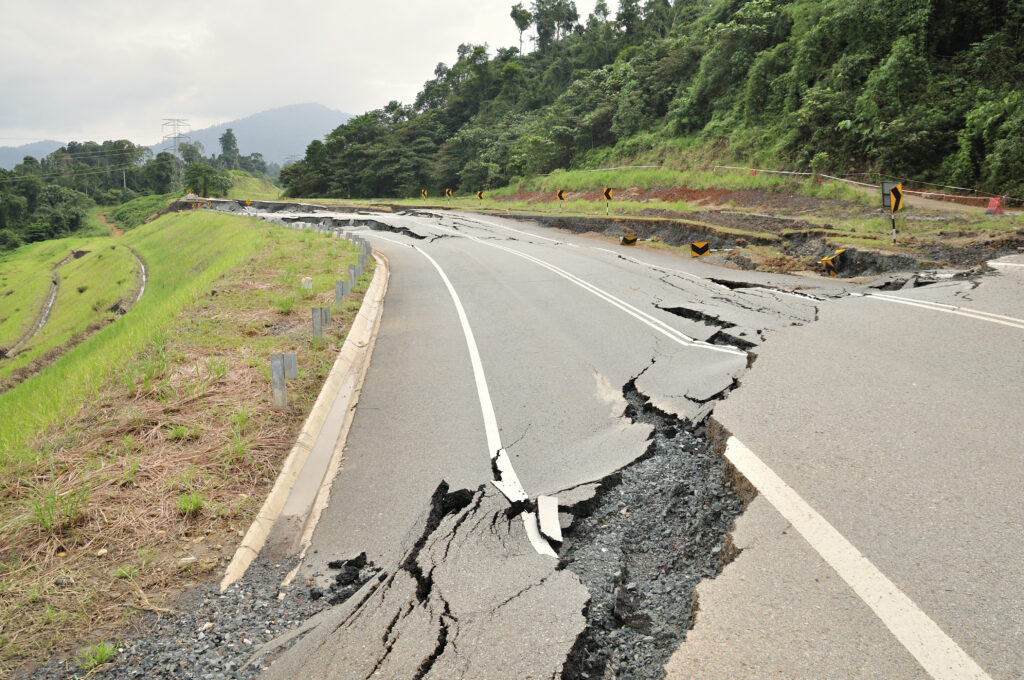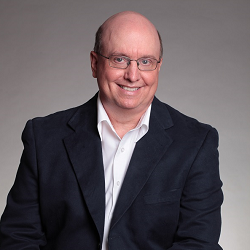New Mexico Company Tackles U.S. Infrastructure Problems
Share:
Welcome to Thomas Insights — every day, we publish the latest news and analysis to keep our readers up to date on what’s happening in industry. Sign up here to get the day’s top stories delivered straight to your inbox.

This article is sponsored by Lithified Technologies US, LLC, a New Mexico based company that has developed custom formulations that transforms base course into the strength of pavement, resulting in up to 67% less asphalt.
The 2021 Infrastructure Investment and Jobs Act brought renewed focus to the country's roads. For every five miles of major roadways in the United States, one mile is in poor condition. Since 2014, one New Mexico business providing full-depth lithification solutions and geotechnical support has been doing its part to solve this problem.
"There are so many more trucks on the road now, and every 40-ton truck causes the same wear and tear as 10,000 automobiles on the highway," says Bob Sherwin, CEO of Lithified Technologies US, LLC. "With 15 million trucks on the road today, it's destroying our highways, which is why everyone's talking about crumbling infrastructure. The top two reasons that roads fail are because of insufficient load capacity and water infiltration, and that's where we excel."
Traditionally, companies making road repairs will grind off failing asphalt, dispose of it in landfills or recycling plants, and then come back to do a new base course with fresh asphalt on top. However, this is an expensive process with a large carbon footprint. The asphalt will also crack and shrink over time, allowing moisture to degrade roads.
Lithified Technologies aims to help clients get the most out of their infrastructure budget with roads that will require minimal future maintenance while providing optimal safety for drivers. The company's customizable LithTec™ base course formulations offer optimal strength and ductility, achieving long-lasting results in more affordable projects.
Get to Know More About Lithified Technologies
- Lithified Technologies spent seven years in research and development before introducing its proprietary LithTec product solutions.
- Made with naturally occurring chemicals, LithTec's accelerated lithification forms a strong road foundation through compaction and moisture in 24 hours.
- The company's public sector clients include city, county, and state DOTs as well as FEMA and the military. Its private sector clients are in the gas, oil, wind, solar, timber, and agricultural industries. Lithified Technologies also works with sovereign nations and the Bureau of Indian Affairs.
Thomas Insights (TI): How does LithTec compare to asphalt?
Bob Sherwin (BS): Roads wear from the top, but they fail from the bottom, and we provide a solution to what's going on under the road. Our LithTec product has a strength of 500,000 psi, which matches that of asphalt, versus a roadway's standard 25,000 psi. Using LithTec as a base course can reduce the needed amount of asphalt by as much as two-thirds. Asphalt can cost $1.5 million per mile, whereas a LithTec base course under an asphalt or chip-seal surface is around $350,000 per mile.
To my knowledge, we're the only company that customizes its formulation for every project. We don't have just one product. It changes on every site because there are thousands of soil types. If you don't customize the formula to optimize it for every job, it could fail miserably.
We're a product supplier with full state-of-the-art geotechnical services. We pull samples from a site, take them to our lab, develop a custom formula, and leave the lab already knowing it's going to work. Then we have another crew of geotechs on-site to make sure the product still achieves the same results there, testing for moisture content, density, and compaction.
TI: What does it mean that LithTec is “Nature’s Concrete™”?
BS: Our product is not a soil stabilizer. Those deal more with water-soluble compactionates. What we're doing is changing the soil at a molecular level into Nature's Concrete.™ LithTec is bound and nondispersive, so it won't come apart in water. We're interested in long-term, permanent solutions, not ones that will require our customers to have to redo the roads every two or three years.
Also, LithTec is an EPA-tested green technology. Everything that we do is about the environment and reducing carbon footprint by as much as 90%. For example, to work on one mile of a two-lane road, it would take about 187 truckloads, hauling away ground asphalt and bringing in the standard sand and gravel base course mixture to a site. That's a huge expense to fuel the trucks, not to mention the carbon emissions. With LithTec, because we grind up and recycle the asphalt on-site, it only takes seven truckloads.
TI: How can the railway industry take advantage of LithTec's applications?
BS: We just finished our fourth project for the Union Pacific Railroad. Railways have big intermodals where they offload cargo containers from the rail onto storage sites. These sites require extreme load-bearing capacities, and in the past, the railroads had to go with 12 or 18 inches of asphalt or even concrete. We treat the dirt at a fraction of the price.
TI: Can you tell us about your work with the mining industry?
We're involved in capping abandoned uranium mines. There are 15,000 of these mines in the United States. Fifty million people live within 10 miles of them, and uranium is affecting 50% of their water. One of our capping methods is to dig a pit, line it with our product, and bury the material that's been running into the water tables to effectively contain it. Alternatively, we'll build a cap with certain minerals that act like a magnet for the uranium. As water passes through, the uranium attaches to these minerals and gets trapped inside like a water filtration system.
Another problem in the mining industry is tailings, or gray dust left over after processing soil for gold, silver, and copper. People may end up breathing these tailings blown from 200 miles away. Mining companies sometimes solve this by submerging tailings underwater, but that contaminates the water. Instead, we turn tailings into an encapsulated concrete-like material so no harmful contaminants can get out. Then we repurpose that substance as a road base material. It took us one and a half years to figure out the right formulation.
TI: How is Lithified Technologies seeking to help communities that have faced environmental disasters?
We're looking to get involved in the environmental catastrophe in Hanford, Washington. The government condemned the entire town in the 1940s to mine plutonium, and it's estimated that it will take $11 billion a year for 60 years to clean up.
The concern is that this radioactive material is going to get into the Columbia River, and a recent white paper by the Los Alamos National Laboratory stated that Lithified Technologies has the best available technology to create earth barriers. This is all part of the infrastructure bill too, so we'd love to play a role in helping clean up disasters and superfund sites.
Find Your Infrastructure Solutions at Lithified Technologies







